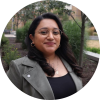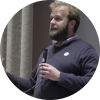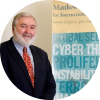Andrea S. Medrano is an Assistant Professor in the Department of Psychology. Her research explores how neighborhood contexts—such as exposure to community violence and sexual harassment—affect adolescents’ psychological and academic outcomes.Guided by a resilience framework and a strengths-based perspective, she investigates protective factors at the individual, family, neighborhood, and cultural levels that help buffer youth from negative experiences. Her work primarily focuses on Latino/a/x adolescents and their parents in both the United States and Mexico, with growing attention to the intersection of multiple marginalized identities.Dr Medrano employs a range of methodological approaches in her research, including cross-sectional and longitudinal statistical analyses, qualitative studies, and mixed-method designs.
Dr. Andrea S. Medrano (Department of Psychology) and Dr. José Giovanni Luiggi-Hernández (Department of Medicine) have received a Global Academic Partnership (GAP) award to launch an interdisciplinary, cross-border initiative addressing gender-based violence (GBV) and mental health in Honduras. In collaboration with Centro de Derechos de Mujeres (CDM), a leading Honduran NGO, the project will assess the impact of GBV on women’s psychological well-being, implement trauma-informed empowerment workshops, and build sustainable partnerships that foster healing and resilience. Grounded in human rights frameworks and mental health research, the project aims to center survivor voices and elevate community-driven solutions. This initiative exemplifies the Global Studies Center’s mission to promote justice-oriented global engagement, highlighting the transformative power of international collaboration in addressing critical social challenges.







